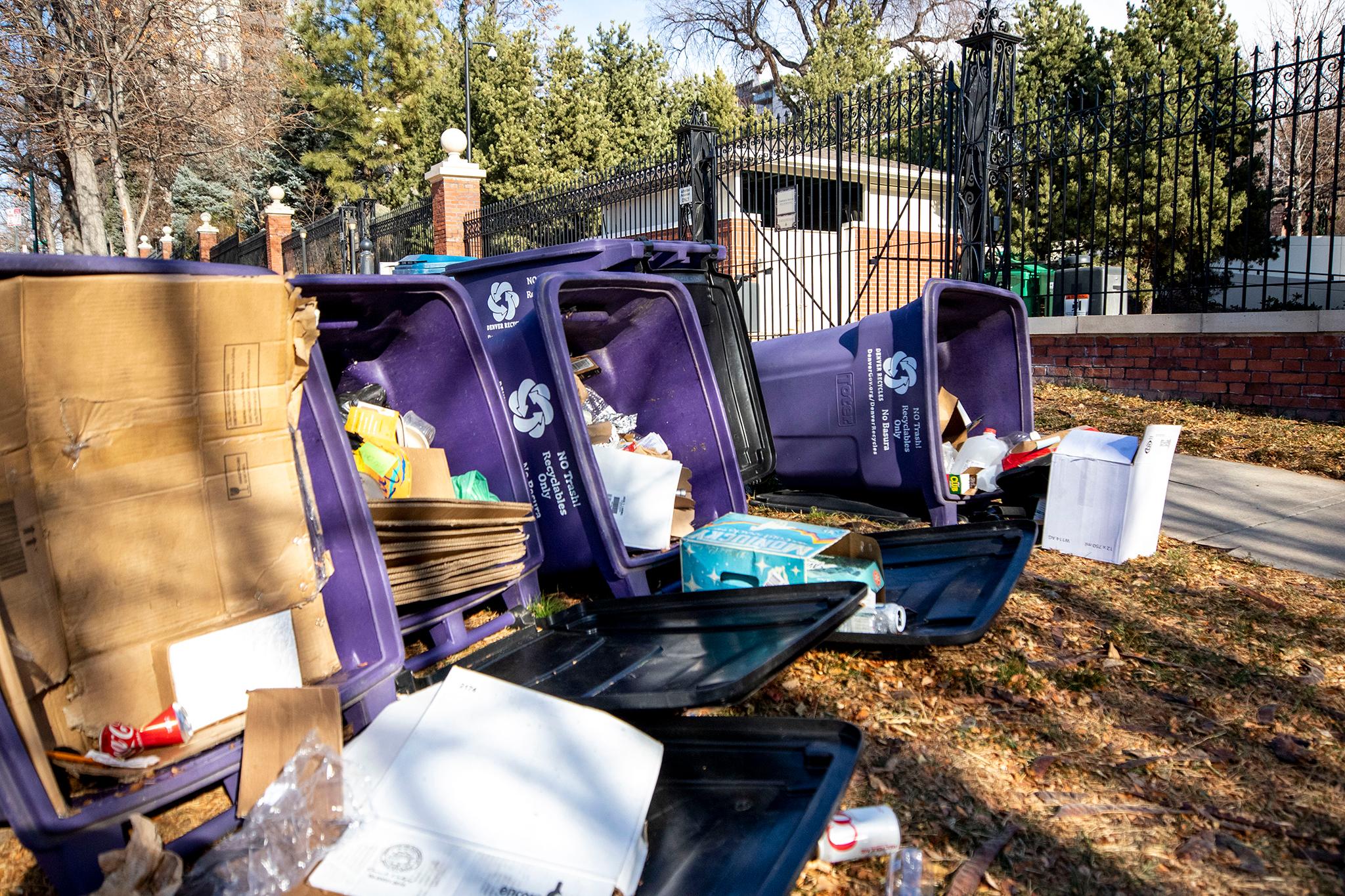In January, Denver started its new "pay as you throw" trash program that charges residents for trash collection but adds additional recycling and compost services for free. It's meant as a climate effort to divert waste from landfills.
But it has taken the city months to roll out universal compost services, an effort that is still ongoing. On Monday, the city will start sending letters to residents in the first wave with information about receiving their bins. Denverites will start getting a cart, kitchen pail and composting guide a few days later.
Here are the first neighborhoods:
- City Park
- City Park West
- Clayton
- Cole
- Elyria-Swansea
- Five Points
- North Capitol Hill
- Skyland
- Whittier
- Parts of Globeville
After those neighborhoods receive carts, the Department of Transportation and Infrastructure (DOTI) will move to Montbello, Gateway and Green Valley Ranch. DOTI said the department is starting with neighborhoods with lower rates of trash diversion to recycling and compost, but that some neighborhoods might not receive carts until 2024.
When passing the bill, some City Councilmembers had questions about the city's capacity to accommodate the new program, and a city audit warned about staffing capacity. Signing bonuses and a contract with a private company helped with staffing, but delivering compost bins across the city will still take time.
"The goal is to grow our compost service thoughtfully and carefully, taking into account that we are delivering a significant service level increase and introducing a big shift in how most residents currently manage their waste," said Adam Phipps, Executive Director of DOTI in a statement. "We'll use a phased approach that allows us time to coordinate with residents and stabilize service levels in one area before moving on to the next."
Under the new system, residents pay for the size of their trash bin: The smaller the bin, the smaller the fee.
The general fund used to cover trash collection, while residents paid extra for composting. Now, that model has flipped. Residents payfor trash but receive compost services for free.
The idea behind the program is to incentivize residents to divert waste away from landfills and into recycling and compost bins. By creating less trash, they can downsize to a smaller bin and pay a smaller trash collection fee.
So far this year, DOTI said the program has increased recycling by 12% and composting by 6%.
Residents who were using compost bins before the program started are currently charged for their trash containers, but because the program is rolling out slowly, residents without compost bins receive a credit for their trash until they get a compost bin.
"Pay as you throw" only applies to residents in buildings with seven or fewer units. Larger buildings are considered commercial property, and are not subject to the new program (but a ballot measure passed in November is bringing recycling and compost requirements to commercial buildings).
You can read more about how the program works and downsizing a bin here.














